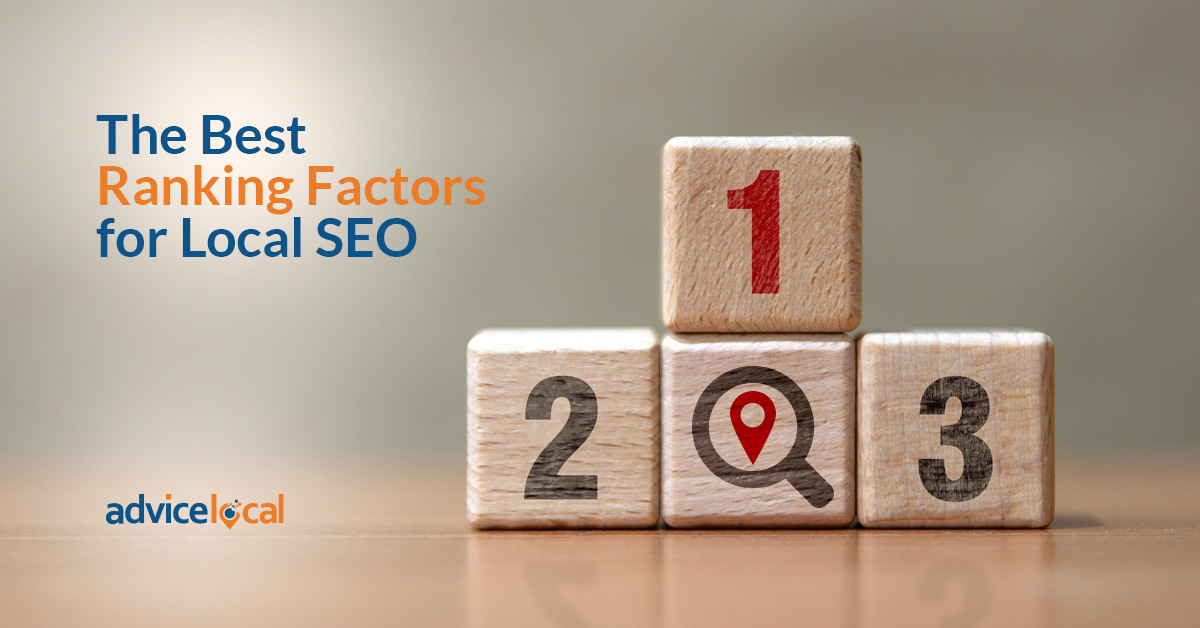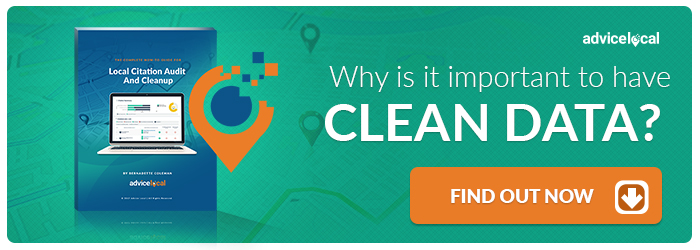If there is any constant in ranking factors for local SEO, it’s that Google, Bing and all the search engines will always have changes. While SEO best practices like monitoring reviews and keeping accurate citations with trusted listings management services will never go out of style, this is tech, so priorities will shift when new apps, integrations and advances emerge. It’s the mid 2020s, so let’s review what’s changed in local search so you can keep your technology and your clients up-to-date.
The Ranking Factors That Influence Local SEO
We usually receive annual updates to local SEO ranking factors in a report once due diligence, testing and professional surveys are completed. However, this information is based on data originally published in 2023, and minimally updated in late 2024 on the Moz blog.
Google Business Profile
The importance of a correctly managed Google Business Profile (GBP) cannot be overstated in local search results. While these verified business listings contain multiple pieces of information about the business, the three most important are as follows: choosing the most authoritative web page from a website for the main URL on the listing; selecting the most relevant categories (up to 10) for the business; and if possible, including a search term within the business title.
We often talk about how vital a verified and well-managed GBP is, and will continue to provide tips to give our agency partners the edge in local search.
Reviews
Reviews across multiple platforms and from various sources continue to impact Local Pack/Finder rankings. Reviews are a valuable trust signal and will always matter to consumers and search engines alike—staying on top of them is vital to a business’ online success.
Agency partners with active listings management accounts have access to Advice Local’s incredible free Review Monitoring Tool. This allows a bird’s-eye view of multiple review sites in one convenient dashboard, making it easy to pull reports and send information to clients. Client engagement with reviews (positive and negative) can encourage a continuous cycle of new reviews, as potential patrons see the business actively interact with past reviewers.
Gaining new written reviews through an owned website, Google Business Profile, and third-party websites (especially from sites and people with authority) is a relevant signal search that engines cannot ignore.
Citations
Real estate has location, location, location, and for local search it’s citations, citations, citations! No matter how often we talk about consistent, high-quality citations as a foundation for good local SEO, it will never be enough. When it comes to structured citations and clean NAP data, sending to relevant distribution channels can make a difference, as the quality and relevance of the platforms that list client businesses absolutely matters.
This is why ongoing listings management is truly necessary for the businesses that local marketers serve. Citations management has to be a strategic part of any local SEO plan.
On-Page Local Signals
Optimized, quality content that meets technical and grammatical standards is always going to help your website, and makes for a much better user experience. When it comes to local ranking factors, providing solid, authoritative information on locations pages is vital.
Location pages work in conjunction with GBP in search, making it easier for potential customers to find client businesses near them. Setting up these location pages with consistent, visible NAP data including service areas, featured products and services, along with having clear calls-to-action will set your location pages apart. When internal links are used well, this keeps customers on a site, and on a journey once they land there. Take care in creating these pages to see improvements in client rankings.
Off-Page Local Signals
As mentioned above, authority makes a difference. Websites and pages that meet the on-page factors listed above and that have great reviews are more likely to have authority. But off-page local signals coming into client sites from authoritative third-party links will affect rankings too.
Realize that link-building is still alive and well—and these links should be from entities relevant to the business or news sites. These links need anchor text that makes sense, hopefully including key search terms. These links should also come from diverse sources.
These are a few of the most important local search ranking factors that a business needs to consider. Keep in mind that every industry also has distinct factors affecting their rankings. Pinpointing which factors make the most impact on specific businesses is best accomplished by using tools like the suite available through Advice Local.
Get Your Clients’ Listings Optimized for Local Search
Get all the tools you need to move your clients’ rank higher in the local pack, maps and organic search. Advice Local’s all-in-one dashboard can improve your agency’s services today. Request a demo or call us at (214) 310-1356.





Simple tips but effective. Just shared this post on my Facebook. Thank you @Bernadette Coleman